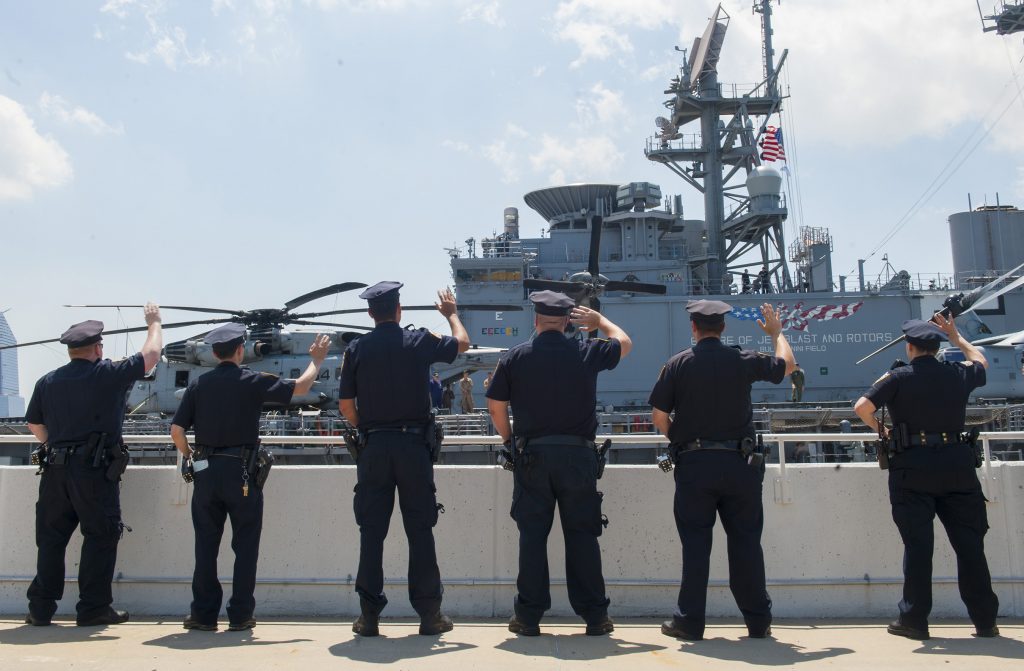By Saul Roth
In the modern police department, police administrators are under constant and excessive stress. Police administrators report stress symptoms such as constantly being tired, always thinking about similar subjects, and being irritable. One of the largest stressors for the police administrator is interacting with other components of the administration department. The loss of prestige from their positions has caused stress among the administrative ranks. As with the lower ranks, administrators suffer stress from family issues relating to the police administrator’s position. The administrators also experience stress when a police officer is killed in their department. Police administrators are often called upon to face situations with which they are unprepared, causing bodily reactions as observed when patrol officers handle a serous incident on the street (Lipp, 2009).
Sergeants experience the most stress in the police department. The sergeants are involved with the police officers on the street and have to deal directly with police management. Supervisors in patrol units also experience more stress. While supervisors assigned to specialize units typically have more job satisfaction, supervisors assigned to headquarters positions experience the most stress. Thus, promotions are not a way of escaping stress in the police department. On many levels, they may increase the stress levels a police officer will experience (Kirkcaldy, Brown, & Cooper, 1998).
Police officers often feel that their work environment is one of their biggest stressors. They feel that the administrative stress and poor supervision is as stressful as some of the critical incidents they handle on the street. Police officers are overloaded with paperwork and in large departments are dealing with a large, impersonal bureaucracy. There are many departments that still do not offer steady shifts. (Liberman et al, 2002). A study of a midwestern police department showed that steady twelve hours tours did not affect police productivity. The shifts allowed the officers to work four days on and four days off. The officers had more time to spend with family and less family work conflict. The officer’s health was not studied, but officers reported feeling less stressed (Pierce, Dunham, 1992). My own personal experience working twelve-hour shifts had made my life less stressful. Many officers feel that the supervisors and the police department do not support them. A study by Brooks and Piquero (1998) showed that officers in Maryland and Virginia believed that the administrative problems, in fact, caused most of their stress. This routine stress that officers experience sets them up for more detrimental responses when confronted with serious incidents on patrol (Liberman et al., 2002).
In addition, the military-like structure of the police department isolates many police officers. Police officers are in the unique position of being out on patrol outside the view of the command structure. The police officer often requires a tremendous amount of discretion to perform his duties. However, upon a visit from a patrol supervisor and working back in the precinct, he or she is under the strict eye of the paramilitary structure and overwhelmed by the number of rules and regulations that control his or her functions. Even though not observed on patrol, many police officers feel the effects of the department rules. Though given much discretion, they are often second-guessed upon completion of a complicated assignment (He, Zhoe, & Archbold, 2002).
Furthermore, female police officers have even more difficulty than male police officers in the police department. Though more women have been recruited into the police department in recent years, it is a still male-dominated culture. Female police officers can expect harassment from their peers and upper level management. Female police officers are more prone to vicious rumors spread through their police department by other police officers. It has been shown that police officers have less stress if they can depend on their co-workers for support and are able to confide in them. Female police officers often do not have the same support system as their male counterparts. There are instances in which female officers gain promotion or transfer ahead of male police officers, which in turn cause resentment in the male officers and continues the pattern of not fitting into the police culture (He et al., 2002).


Recent Comments